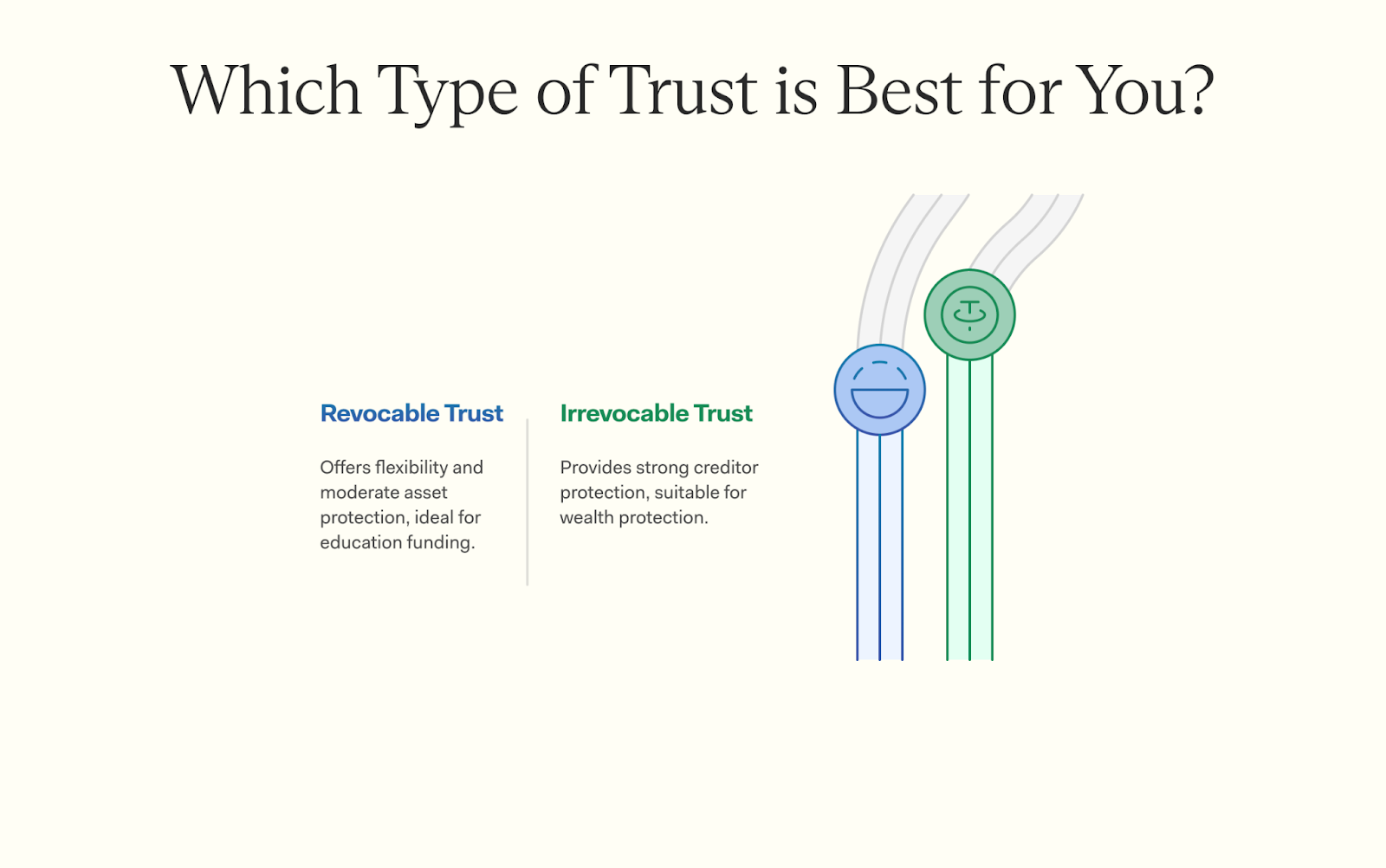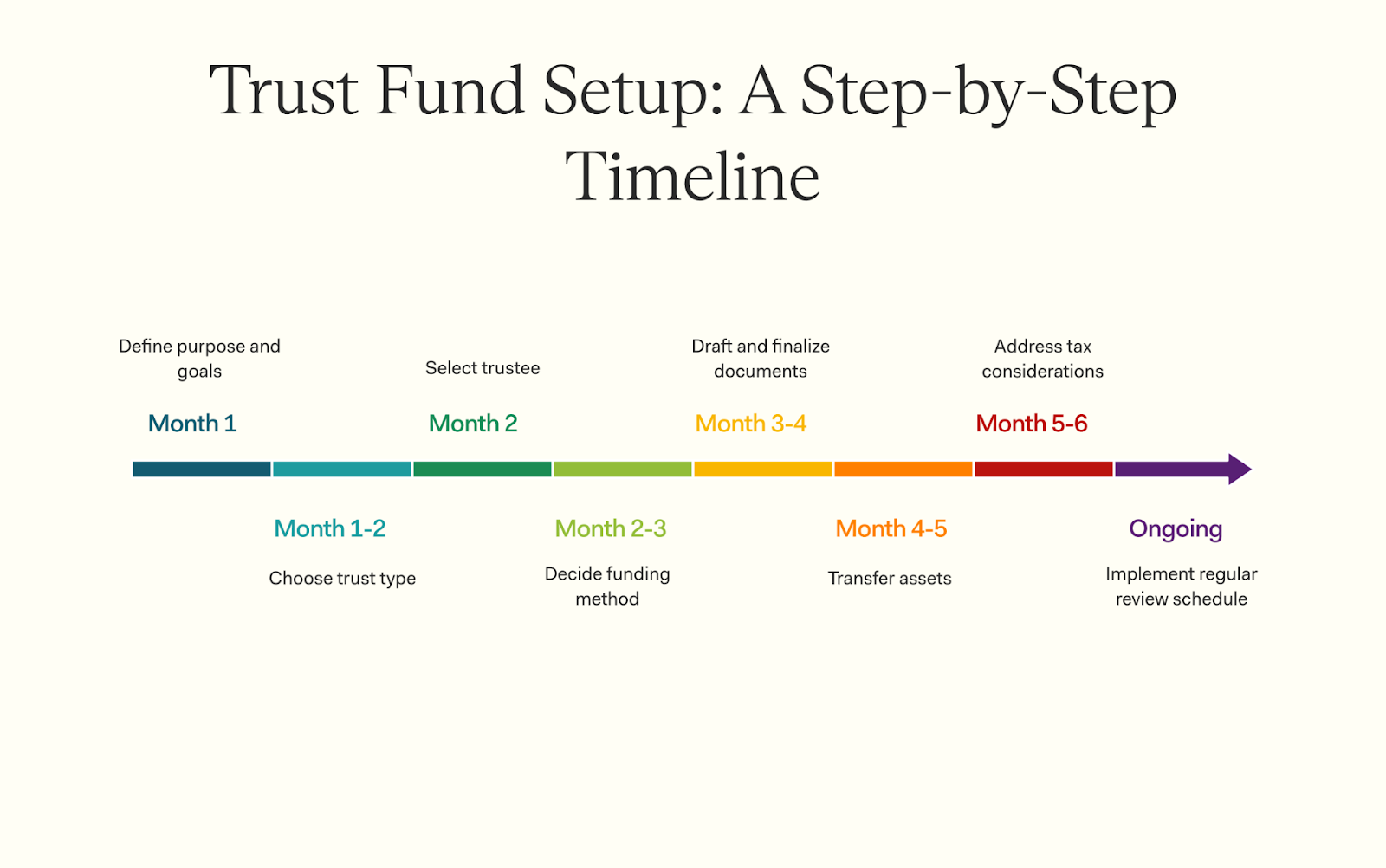Learn how to establish a trust fund that supports your child's future success. Discover practical steps and essential tips.
How can you secure your child's financial future in today's uncertain economic landscape? A trust fund provides a powerful solution for protecting assets while directing how they'll support your children's needs.
Not just for the wealthy, trusts serve multiple purposes from safeguarding assets to funding education or supporting special needs children. Various trust types offer different advantages depending on your specific goals and circumstances.
This guide explores how to establish the right trust for your family, including selecting trustees, choosing assets, and setting distribution conditions that align with your wishes while potentially reducing tax burdens.
Deciding the main purpose of your trust fund is the first step in establishing one for your child. Many parents want to protect assets, secure their child's financial future, and save for education costs.
They might create a trust to give money to their child at key moments like turning 18, starting college, or buying a first home. This strategy protects the money from creditors and ensures the child has financial support.

The right trust choice ensures financial security and meets your goals by offering different control and benefit options.
Match your trust choice with your financial goals for your child's future. Different trusts provide various control levels and benefits.
A revocable trust allows you to change or end it anytime. You can adjust the rules as your life changes. This type of trust helps keep your child's financial security safe. Parents often use it for future education costs or other assets.
You still control the trust while you're alive. You can move money, property, and investments in and out easily. If something happens to you, a trustee will manage the trust according to your wishes.
However, assets in a revocable trust are considered part of your estate for tax purposes and are not protected from creditors or legal claims.
An irrevocable trust cannot be changed or canceled once it is set up. This means you give up control over the assets in this trust. It provides strong asset protection for your child's financial security.
If you want to protect wealth from creditors, an irrevocable trust is a good choice.
The funds in this trust can only be used according to the rules you set. You can outline specific purposes for spending money, like education or buying a home. The trustee will manage and distribute these assets based on your wishes.
Setting up an irrevocable trust can provide peace of mind about your child's future being secure. However, it's important to consider that you will be relinquishing control over the assets, which might not suit everyone's needs.

Selecting the right trustee is crucial for your child's trust fund. This person will manage the trust assets and distribute funds as needed. Look for someone who can handle money well.
They should be honest and dependable too.
Friends or family can serve as trustees, but make sure they understand their responsibilities. A professional, like an attorney or financial advisor, might also help. It's smart to pick someone you trust fully.
Discuss options with them before making a decision about how to set up a trust that lasts throughout your child's lifetime.
A trust can be funded in many ways. Cash is the simplest option. You put money directly into the trust account. You could also use investments like stocks or bonds. This method helps grow wealth over time.
Consider transferring assets too. Real estate, vehicles, and other valuables can go into the trust. These items provide funds for your child at certain ages or milestones. Make sure to think about how much you want to set aside and what types of assets will work best for your goals.
Creating the trust document is a critical step. This document spells out how you want your trust fund for your child to work. It should include details about who gets what and when they get it.
You might want to outline rules for spending or conditions for receiving assets. Every choice affects how wealth will be distributed after your death.
Once you've written it, review the draft carefully. Get help from a lawyer if needed—trust documents can be tricky! A clear, well-written trust ensures everything happens as you planned.
After finalizing, make sure all parties involved understand their roles and responsibilities. Then you're ready to move on to transferring assets into the trust.
With your trust document finalized, it's time to move your assets. This step is key for setting up a trust fund for your child.
Make sure each step is completed carefully to avoid confusion in the future.
Transferring assets into the trust changes how you handle taxes. Trusts can have their own tax rules. A revocable trust often means the grantor pays taxes on income earned within it.
An irrevocable trust usually shifts tax responsibility to the trust itself or beneficiaries.
Wealthy families may want to consider gift taxes too. If you add money or property, it might count as a gift, which could hit limits set by the IRS. In 2025, that limit is $19,000 per recipient each year.
Anything over that may require filing a gift tax return.
Finally, investing in your child's future through a trust may also create complications with estate taxes later on. Understanding these rules can save money and ensure your efforts achieve what you intend for your child's financial security.
To ensure your trust meets your child's needs, review its terms regularly. Life changes, like a new job or family situation, may affect your goals. Adjust distributions if necessary.
Look at the trust's investments regularly too. Make sure they align with your financial goals for your child. Keep track of any tax implications as well; these can change yearly. A strong trust fund for a child provides security and flexibility—stay on top of it!
Setting up a trust fund for your child can provide financial security, tax advantages, and long-term wealth protection. But with different types of trusts and legal considerations, where do you start?
Speak with a Farther financial advisor today to create a trust that aligns with your goals and ensures your child's financial well-being!
Setting up a trust fund for your child is a powerful way to secure their financial future. You've learned about defining its purpose, selecting the right type of trust, choosing a trustee, and funding it properly. While the process may seem complex, thoughtful planning now ensures long-term benefits.
By taking action today, you're creating a foundation for your child's financial security. A well-structured trust provides lasting protection—the time to start planning is now!
A trust fund for a child is a legal arrangement where assets are held and managed on behalf of the child until they reach an age specified in the trust.
Setting up a trust fund involves several simple steps, which may include deciding on the type of trust, appointing trustees, and specifying how you want to distribute assets.
Yes, certain types of trusts allow you to retain control over your assets while still providing financial security for your children's future.
Yes indeed! There are various types of trusts available depending on your specific needs - each with its own rules about how to accomplish your goals.